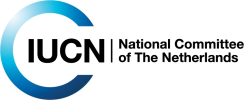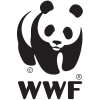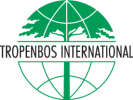In the Savannah Region in Ghana deforestation and poverty go hand in hand. Local IUCN NL partner A Rocha works with the authorities, local communities and businesses on ambitious plans to boost biodiversity and the local economy. IUCN NL supports these efforts by providing expertise in private financing.
A call for innovative project proposals to address unsustainable Biomass fuel (Firewood and Charcoal) production in the Mole Ecological Landscape through Climate Smart Business ideas is now open. The deadline to submit a proposal is August 12. Apply through the link below.
In August 2021, A Rocha Ghana and partners opened a call for Climate-smart Green Business initiatives that build climate change resilience and achieve landscape restoration by reducing firewood and Charcoal production related deforestation and improve access to renewable biomass energy.
Training and consultations sessions have since been held for finalists of the MoMo4C Business Call. The participants were also privileged to go on an exchanged visit to Zaacoal Limited―a renewable energy company which produces clean, long burning and high heat charcoal from coconut waste.
A Rocha Ghana produced a video about their visit to Zaacoal Limited.
Nestled in Ghana's cacoa hub, the western north region is a vibrant high firest zone renowned for its greenery and remarkable biodiversity. The regions stands as the nations powerhouse, with countless smallholder farmers dedicating their lives to cultivating cocoa. With the support of MoMo4C, these farmers are diversifying their income sources beyond cocoa production. This film takes you into the Sefwi-Wiawso-Juaboso-Bia landscape, where innovative Green Business initiatives are helping cocoa farmers build sustainable livelihoods.
The Juabeso-Bia & Sefwi Wiawso landscape in Ghana is situated in the Bia-Tano River Basin in the High Forest zone in the Southwest of Ghana. The area is dominated by the Bia Biosphere Reserve and is home to a large population of forest elephants as well as other primates. It serves as an important wildlife corridor between Ghana and Côte d’Ivoire.
The economy and the income of local people in this region largely depend on the production of cocoa. Additional sources of income include tree crops such as palm oil, fruits and timber and staple crops such as cassava, maize, plantain and livestock.
Vulnerable Smallholders
Rates of deforestation and forest degradation are high in the landscape. The transition from shade-tolerant to sun-tolerant cocoa has contributed to the removal of trees. All of these developments have led to large CO2 emissions and more vulnerable smallholders.
Additional threats to the landscape include over-reliance on cocoa, artisanal mining and slash-and-burn agriculture. In order to increase climate, environmental and economic resilience of the landscape, these threats have to be addressed.
Reintroduction Of Shade-Trees: A Win-Win
The return of shade-trees in the cocoa garden will not only contribute to CO2 capture. It will also contribute to climate resilience: soils and biodiversity will be better protected, while local farmers will have better crop insurance and more diversified incomes because of the fruits, nuts, herbs and timber that trees provide.
Momo4c Action In Juabeso-Bia & Sefwi Wiawso
In the Juabeso-Bia and Sefwi Wiawso landscapes, Tropenbos Ghana will facilitate the development of innovative green business and finance models to unlock commitments of landscape stakeholders to reduce deforestation, improve cocoa yields and livelihoods, paying particular attention to female and young Ghanaian entrepreneurs.
These efforts will reduce climate vulnerability associated with the landscape and small-holder farmers’ livelihood. The resulting models will function as examples for other landscapes where the production of agro-commodities and forest encroachment leads to further deforestation and forest degradation.
Like much of Northern Ghana, the Mole Ecological Landscape is vulnerable to climate change. A Rocha Ghana therefore works with communities, district assemblies and companies on reducing deforestation and promoting the restoration of savanna woodlands around Mole National Park. Through business competitions, Momo4Climate selects and supports entrepreneurs that make businesses out of planting trees, sustainable charcoal production, community collection and processing of naturally growing shea nuts.
The Mole Ecological Landscape is a biodiversity hotspot in the north of Ghana surrounding the Mole National Park, Ghana’s largest protected area. The area covers 17 thousand square kilometres and supports an estimated population of 320,000. The landscape forms part of the Volta basin, which contributes significantly to Ghana’s economic development through the provision of vital water resources and support for agriculture activities.
Communities living across this savannah landscape are closely dependent on local natural resources. Agriculture and livestock rearing are the major source of employment and people collect non-timber forest products (NTFPs), wild fruits and nuts like Shea and DawaDawa.
Subsistence Farmers Affected By Climate Change
Like much of Northern Ghana, the Mole Ecological Landscape is vulnerable to climate change. Dry weather conditions, high levels of poverty, heavy reliance on rain-fed agriculture for livelihoods coupled with unsustainable resource use, governance, and policies negatively influence the livelihoods of communities in the Mole landscape who are mostly subsistence farmers.
The communities and district assemblies within the landscape are considered one of the most vulnerable in a preliminary vulnerability assessment conducted by the Environmental Protection Agency of Ghana.
Climate change is expected to have a greater impact on crop yields in the area, and the severity will become greater as warming increases. Importantly, many of the areas where crop yields are likely to decrease are also areas that are already experiencing food insecurity. Communities’ resilience to climate change relies on a combination of their ability to adapt to new conditions and also their capacity to recover from, frequent and severe disturbances.
Momo4c Action In The Mole Ecological Landscape
To improve climate resilience in the Mole ecological landscape, A Rocha Ghana works with individual entrepreneurs, community associations and companies to transition environmentally unfriendly livelihood and economic ventures into more sustainable, and green investments. These need to be restorative, enhance ecosystem services and help people living in the landscape build adaptive capacity.
Through baseline studies, A Rocha has identified prospective community association and individual enterprises that have potential for benefitting from targeted finance lending schemes that will eventually lead to transition and improvement of current destructive livelihood ventures.
Collaboration with public and private sector
MoMo4C is also working with companies such as Form International on reducing deforestation and promoting the restoration of savanna woodlands around Mole National Park. Business competitions are organized to find and support the best entrepreneurs that make businesses out of planting trees, sustainable charcoal production, community collection and processing of naturally growing shea nuts and other high-end non-timber forest products. Local communities and particularly women are involved in business development.
In partnership with the Environmental Protection Agency of Ghana, we use the baseline in-depth vulnerability assessment of the landscape to support district assemblies to align adaptation to the National Adaptation Plans and further use these plans to drive investments for adaptation interventions.
The program also builds on several other landscape or sub-jurisdictional programs on landscape restoration and emissions reduction under Ghana’s REDD Plus strategy as well as programs by other bi-lateral agencies like GIZ, IUCN, UNDP, EU and AFD as well as commodity sustainability platforms like the Global Shea Alliance.
After a seven-month intensive scrutiny of proposals and applications, we are happy to announce that Tai Pana Limited, a sole proprietorship enterprise has won first place in the maiden edition of the Mobilising More for Climate (MoMo4C) Business Call targeted at the Mole Ecological Landscape in the Savannah Region of Ghana.
This brief presents new empirical evidence on how climate change manifest in Ghana cocoa hotspot intervention areas, its impacts, and the mechanism communities in this area adopt to reduce their vulnerabilities. Ample evidence has been established to argue that if the current trajectory goes unchecked it would impact smallholder cocoa farmers’ livelihood, national foreign exchange earnings, and overall poverty alleviation in the countryside.
A news article has been published by Ghana News Agency about the work of Tropenbos Ghana under MoMo4C.
Tropenbos Ghana has selected ten promising business ideas from some selected individuals in the Western North region to support and develop full business cases under its Mobilizing More for Climate (MoMo4C) programme.
Ecotourism, agroforestry (for oil palm and cocoa), beekeeping and fish farming are among ten sustainable green business proposals that were selected in the Sefwi Wiawso, Juabeso, and Bia landscapes in Ghana, to be further developed under the Mobilizing More for Climate (MoMo4C) programme. They were chosen for their focus on innovative climate actions that address key landscape challenges such as the loss of biodiversity due to deforestation and forest degradation, and dependence on one a crop, by building adaptive capacities, promoting crop and income diversification, and value addition.
The Juabeso-Bia and Sefwi-Wiawso Landscape (JBSW) in the Western North Region of Ghana is located in the High Forest Zone and has considerable levels of biodiversity. However, the landscape faces the threats of deforestation and forest degradation, which compromise the livelihoods of forest adjacent communities and the general population.


